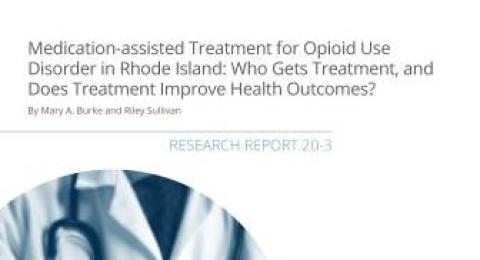
January 2021
Contact: Cameron Doherty
Email: Cameron.Doherty@bos.frb.org
The New England Public Policy Center at the Boston Fed recently released a report entitled “Medication-assisted Treatment for Opioid Use Disorder in Rhode Island: Who Gets Treatment, and Does Treatment Improve Health Outcomes?”. Though the work is based on empirical data in Rhode Island, I thought that you may find it applicable to issues in New Hampshire as well.
The report’s findings include:
- Those with opioid dependence who live in areas with elevated poverty rates are less likely to receive buprenorphine, but more likely to receive methadone.
- Having Medicaid insurance is associated with a much greater chance of receiving methadone.
- The typical buprenorphine prescriber has a caseload that is well below the maximum number of patients they could treat, and more people could be helped if more prescribers took full advantage of prescribing limits.
- Policies that enable mid-level practitioners to train to prescribe buprenorphine was found to draw in new patients, particularly those from high-poverty Zip codes.
Related Links
Carriers
Categories
Purpose
